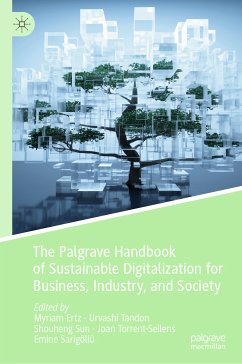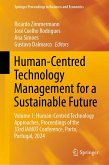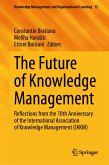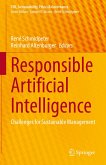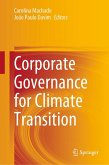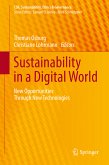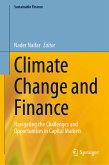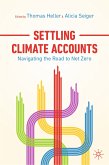technological perspective of the Fourth Industrial Revolution."
- Alejandro G. Frank, Professor & Director, Organizational Engineering Group, Industrial Engineering Department, Federal University of Rio Grande do Sul (UFRGS)
"This Handbook on digitalization for sustainable development is an excellent work on the subject. It provides a broad vision of disruptive change, but at the same time delves into the key aspects of the global digitalization process in firms. The enjoyable reading of the document leads the reader to an easy understanding
of the current route of the digital world and its sustainable development."
- Dario J. Quiroga-Parra, Professor, Universidad Cooperativa de Colombia (Cali, Colombia)
This handbook conceptualizes sustainable digitalization and discusses the role of digitalization in addressing business and societal challenges. Divided into eight sections, the book opens by an introductory chapter examining the theoretical foundations of the field. Part 1 explores the first dimension of sustainable digitalization, namely digitalization for sustainability (DFS) or how digitalization could address several of the sustainable development goals.
Part 2 addresses the second dimension of sustainable digitalization. Titled responsible digital (RD), it covers the potential risks of increased digitalization and outlines strategies for governing digitalization for sustainable development to avoid the risks summarized earlier in the book.
Tying digitalization to such topics as smart agriculture, industry 4.0, education, ecological transition, climate, clean water, food production, and social well-being, this handbook provides a framework for the emerging field of sustainable digitalization.
Myriam Ertz is Associate Professor of Marketing at the University of Quebec at Chicoutimi (UQAC), Canada.
Urvashi Tandon is Associate Professor at Chitkara Business School, Chitkara University, India.
Shouheng Sun is Assistant Professor at the University of Science and Technology Beijing (USTB), China.
Joan Torrent-Sellens is Full Professor at the Economics and Business Studies Department of the Universitat Oberta de Catalunya (UOC), Spain.
Emine Sarigöllü is Associate Professor of Marketing at Desautels Faculty of Management, McGill University, Canada.
Dieser Download kann aus rechtlichen Gründen nur mit Rechnungsadresse in A, B, BG, CY, CZ, D, DK, EW, E, FIN, F, GR, HR, H, IRL, I, LT, L, LR, M, NL, PL, P, R, S, SLO, SK ausgeliefert werden.

